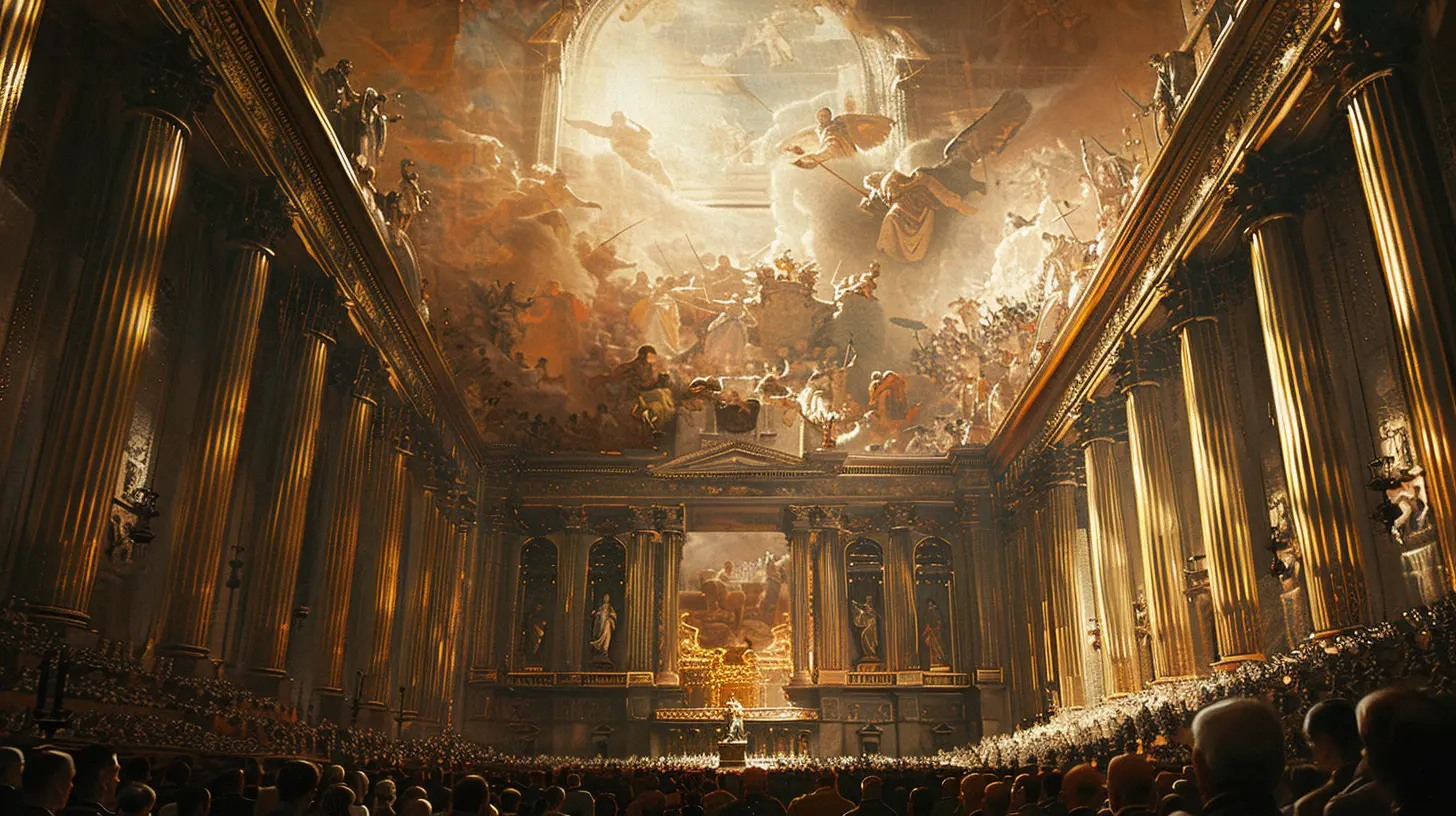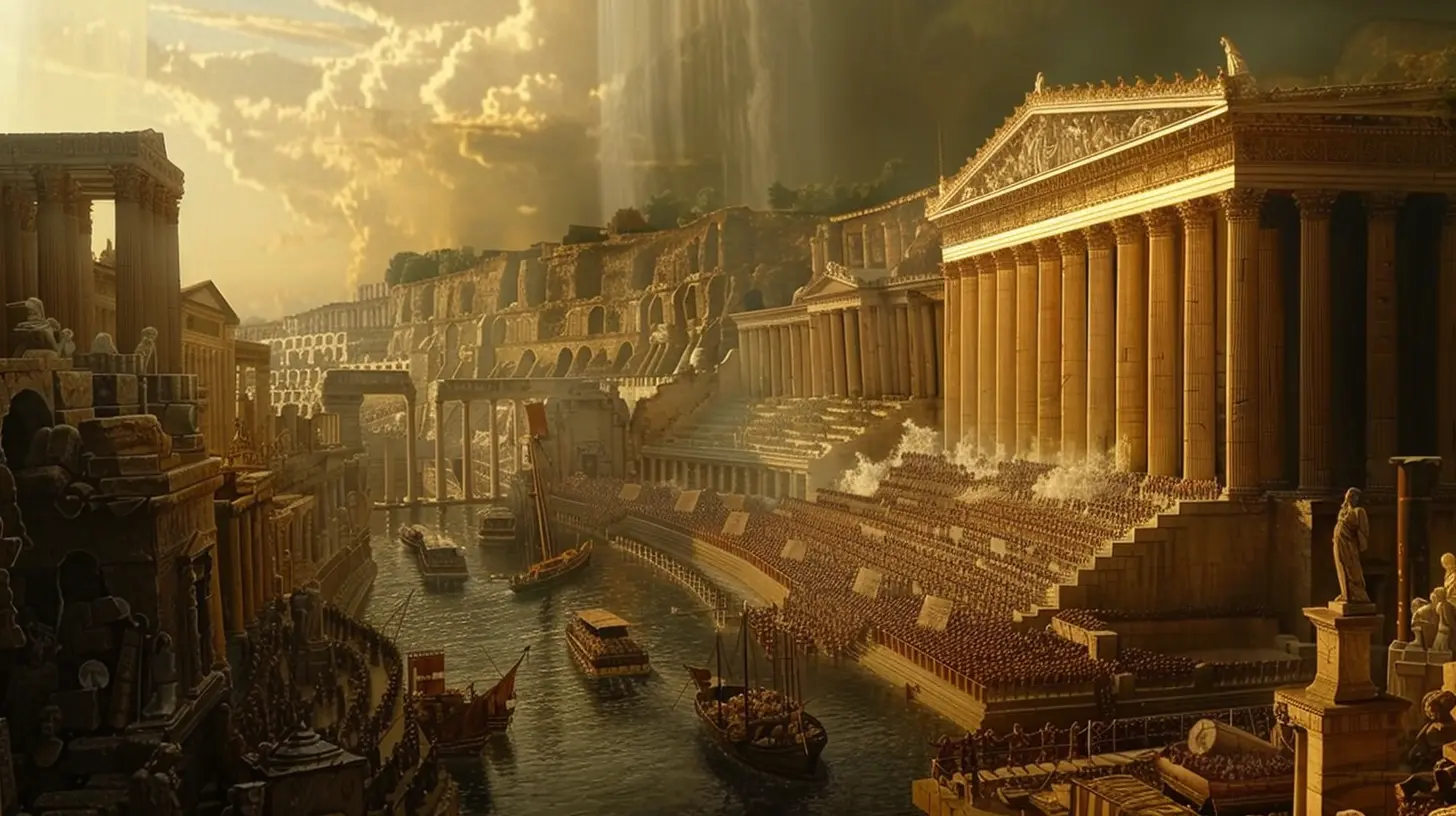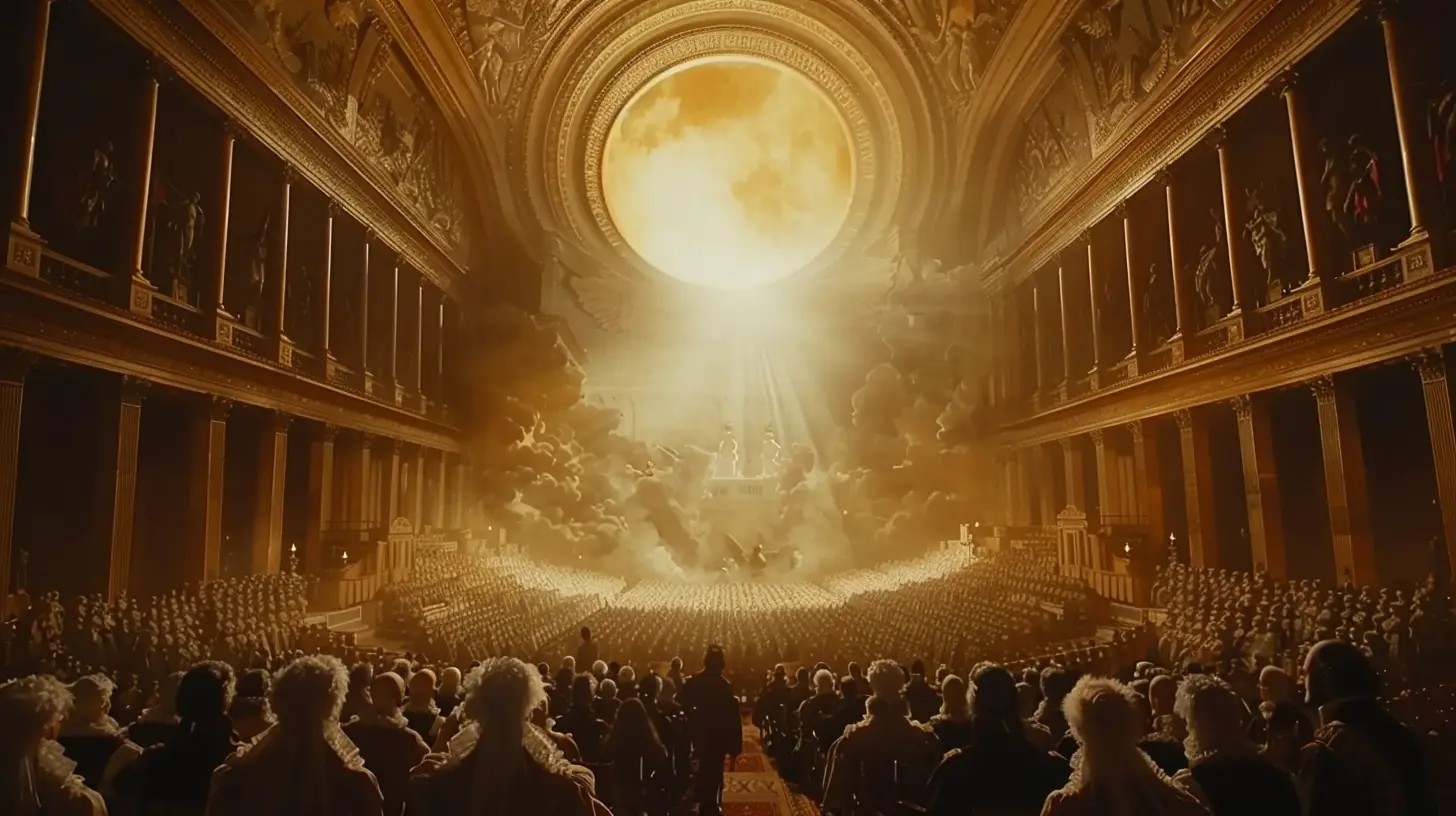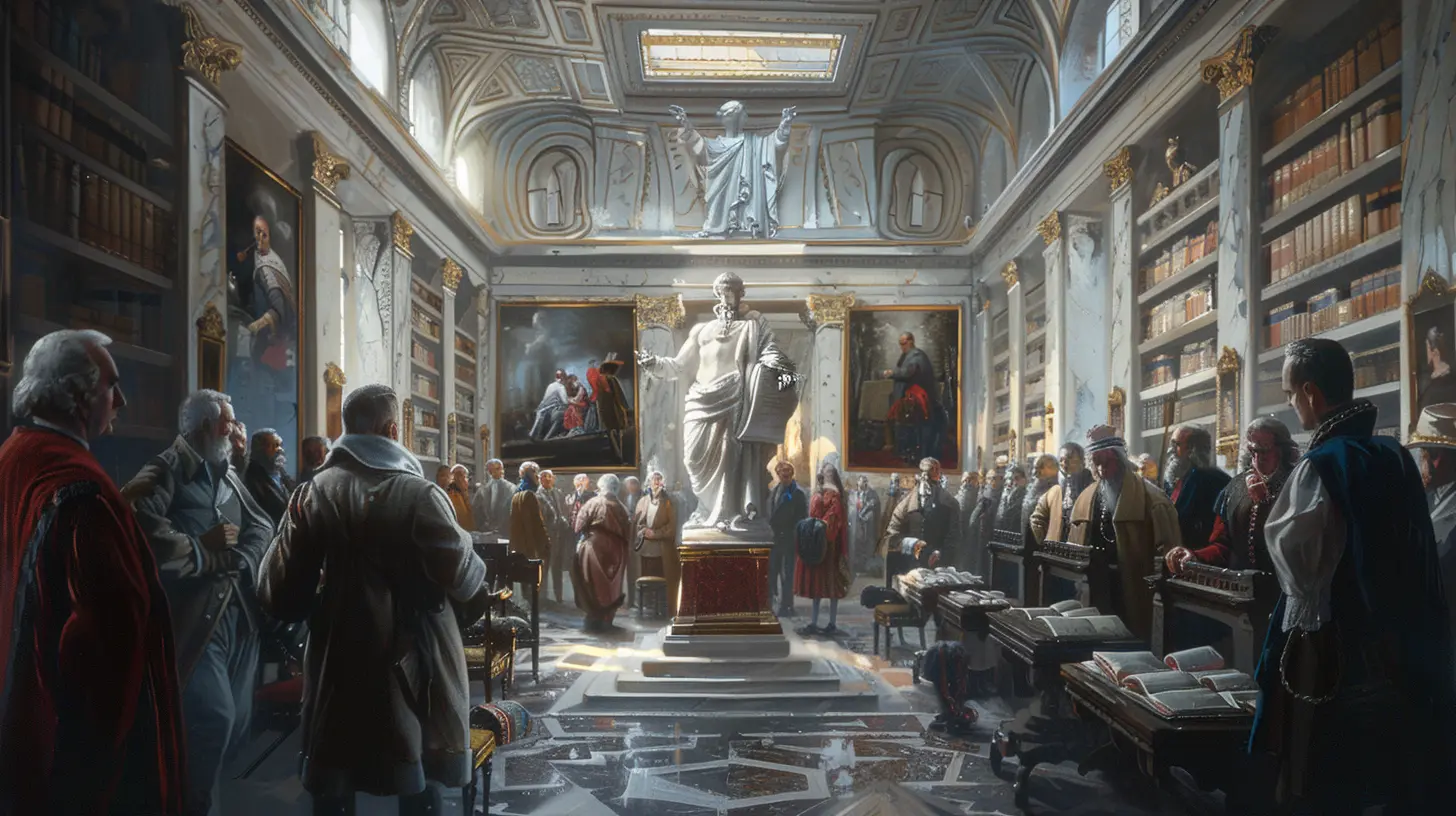The Impact of the Enlightenment on Modern Society
8 May 2025
The Enlightenment was a revolutionary intellectual movement of the 17th and 18th centuries that reshaped how people think about government, science, religion, and individual rights. But does something that happened hundreds of years ago still matter today? Absolutely. The ideas born during the Enlightenment laid the foundation for modern democracy, human rights, scientific progress, and even the way we approach education and social justice.
In this article, we’ll dive deep into how Enlightenment ideals continue to shape our world today and why this period of intellectual awakening remains relevant in the 21st century.

What Was the Enlightenment?
Before we get into its impact, let’s quickly define what the Enlightenment actually was. Also known as the "Age of Reason," the Enlightenment was an intellectual and philosophical movement that emphasized reason, individualism, and skepticism of traditional authority. Thinkers like John Locke, Voltaire, Jean-Jacques Rousseau, and Immanuel Kant championed critical thinking, democracy, and scientific discovery over blind faith and authoritarian rule.This period encouraged people to question long-held beliefs and seek truth through logic and experimentation. Essentially, the Enlightenment was the era when humanity decided to start thinking for itself.

The Enlightenment and Modern Democracy
One of the biggest legacies of the Enlightenment is modern democracy. Before the 17th century, monarchs ruled with absolute power, often claiming divine right. Then came thinkers like John Locke and Montesquieu, who introduced radical ideas about the separation of powers, individual rights, and government by the people.How Did the Enlightenment Shape Political Thought?
- Popular Sovereignty – The belief that governments derive their power from the consent of the governed was a significant shift from the divine right of kings. This idea directly influenced the American and French Revolutions.- Separation of Powers – Montesquieu’s idea that government should be divided into different branches to prevent corruption is the foundation of modern democratic systems.
- Human Rights & Liberties – The Enlightenment emphasized personal freedoms, a concept deeply embedded in documents like the U.S. Constitution and the Universal Declaration of Human Rights.
Without Enlightenment thinkers pushing for these principles, we wouldn’t have the democratic systems we value today.

Science and the Enlightenment: A Lasting Relationship
Imagine a world without medical advancements, space exploration, or technology. Hard to picture, right? The Enlightenment gave rise to the Scientific Revolution, which fundamentally changed how we understand the world. Scientists like Isaac Newton, Galileo Galilei, and Francis Bacon promoted the scientific method—an approach based on observation, experimentation, and evidence.How Did the Enlightenment Influence Science?
- Rational Thought Over Superstition – Before the Enlightenment, many phenomena were explained through myths or religious beliefs. Scientific reasoning helped uncover real explanations for natural events.- Technological Advancements – The principles of scientific inquiry led to groundbreaking discoveries in medicine, physics, and engineering.
- Encouragement of Free Thought – The shift toward questioning established ideas laid the groundwork for future scientific exploration.
Everything from modern medicine to space travel exists because of the Enlightenment’s emphasis on intellectual curiosity.

Education: From Privilege to a Right
Before the Enlightenment, education was generally reserved for the wealthy or religious elites. The idea that everyone deserves access to knowledge was a radical concept at the time. Thinkers like Rousseau and Kant insisted that education should be a fundamental right, not a privilege.How Has Enlightenment Thinking Changed Education?
- Public Education Systems – The push for widespread education led to the establishment of public school systems worldwide.- Critical Thinking Over Memorization – The Enlightenment emphasized reasoning and questioning, a shift from rote learning to analytical thinking.
- Equal Access to Knowledge – The belief that education should be accessible to all continues to influence modern debates about school funding, student loans, and literacy programs.
The reason education is seen as a basic right today? Enlightenment ideas paved the way.
The Enlightenment and Social Justice
Think about today’s human rights movements—feminism, racial equality, LGBTQ+ rights. The seeds of these movements were planted during the Enlightenment when thinkers started challenging traditional hierarchies and advocating for equality.How Did the Enlightenment Influence Social Movements?
- Abolition of Slavery – Philosophers like Montesquieu and Voltaire criticized slavery, influencing the abolitionist movements of the 19th century.- Women’s Rights – Thinkers like Mary Wollstonecraft argued for women’s education and equal rights, laying the foundation for modern feminism.
- Freedom of Speech & Thought – Voltaire’s famous quote, “I disapprove of what you say, but I will defend to the death your right to say it,” captures the Enlightenment’s impact on free expression.
Without this period’s push for equality, modern social justice movements wouldn’t be what they are today.
The Downside of Enlightenment Thinking
Of course, no movement is without flaws. While the Enlightenment championed reason and progress, it also reinforced certain biases. Colonialism, for instance, was often justified using Enlightenment principles, with some thinkers arguing that European societies were "more enlightened" than others.Furthermore, the emphasis on logic sometimes dismissed emotion and cultural traditions, leading to societies that valued science over spirituality. While the Enlightenment brought incredible progress, it also came with challenges that we continue to navigate.
Conclusion: Why the Enlightenment Still Matters
The Enlightenment wasn’t just a historical period; it was a mindset shift that still influences how we think, govern, and live. From democracy and human rights to education and science, its impact is everywhere.When we fight for freedom of speech, advocate for education reform, or push for scientific advancement, we are carrying on the Enlightenment’s legacy. Its core lesson? Never stop questioning, learning, and seeking progress.
What do you think is the most important Enlightenment idea that still shapes our world today? Let’s keep the conversation going!
all images in this post were generated using AI tools
Category:
History LessonsAuthor:

Zoe McKay
Discussion
rate this article
6 comments
Quorra Lawson
This article effectively highlights the Enlightenment's profound influence on contemporary values like reason and individual rights. Expanding on specific examples could deepen the readers' understanding even further!
May 21, 2025 at 12:29 PM

Zoe McKay
Thank you for your insightful feedback! I appreciate your suggestion and will consider incorporating specific examples to enhance the article's depth.
Hudson Ellison
The Enlightenment laid the foundation for modern thought by championing reason, individualism, and human rights. Its influence is evident in our democratic values, scientific advancements, and commitment to education. Embracing these principles fosters critical thinking and progress, reminding us that knowledge and enlightenment can empower society to evolve continually.
May 21, 2025 at 4:20 AM

Zoe McKay
Thank you for your insightful comment! The Enlightenment indeed shaped our modern values and continues to inspire progress through reason and individual empowerment.
Candace McKenzie
The Enlightenment was the catalyst for reason and individualism, shattering oppressive norms. Today, we must boldly champion its ideals of critical thinking and freedom; complacency in ignorance will only lead us back to the dark ages.
May 18, 2025 at 3:47 AM

Zoe McKay
Absolutely, the Enlightenment's emphasis on reason and individualism remains crucial today. Embracing these ideals can prevent a regression into ignorance and foster a more enlightened society.
Thornewood Barlow
The Enlightenment reshaped our intellectual landscape, igniting a revolution in thought that still fuels modern democracy and individual rights. Its legacy is evident in our commitment to reason, scientific inquiry, and social progress. Yet, as we navigate today's challenges, we must remember: enlightenment requires constant vigilance and active engagement.
May 10, 2025 at 10:31 AM

Zoe McKay
Thank you for your insightful comment! Indeed, the Enlightenment's emphasis on reason and individual rights continues to inspire modern society, reminding us of the importance of vigilance and engagement in upholding these ideals.
Rosanna McCray
Enlightenment? More like ‘Enlighten-me’! Without those bold thinkers, we’d still be stuck in the Dark Ages, debating whether the Earth was flat or just really, really big. Get with it!
May 9, 2025 at 8:09 PM

Zoe McKay
Absolutely! The Enlightenment was crucial in challenging outdated beliefs and fostering critical thinking, paving the way for progress and modern knowledge.
Talia McMahon
Enlightenment ideals shape today's democratic values.
May 9, 2025 at 10:28 AM

Zoe McKay
Absolutely! Enlightenment ideals like reason, individualism, and equality laid the groundwork for contemporary democratic values, promoting governance based on consent and human rights.




